2023年高考英语必考语法点精讲精练-情态动词和虚拟语气课件(41张PPT)
文档属性
| 名称 | 2023年高考英语必考语法点精讲精练-情态动词和虚拟语气课件(41张PPT) | 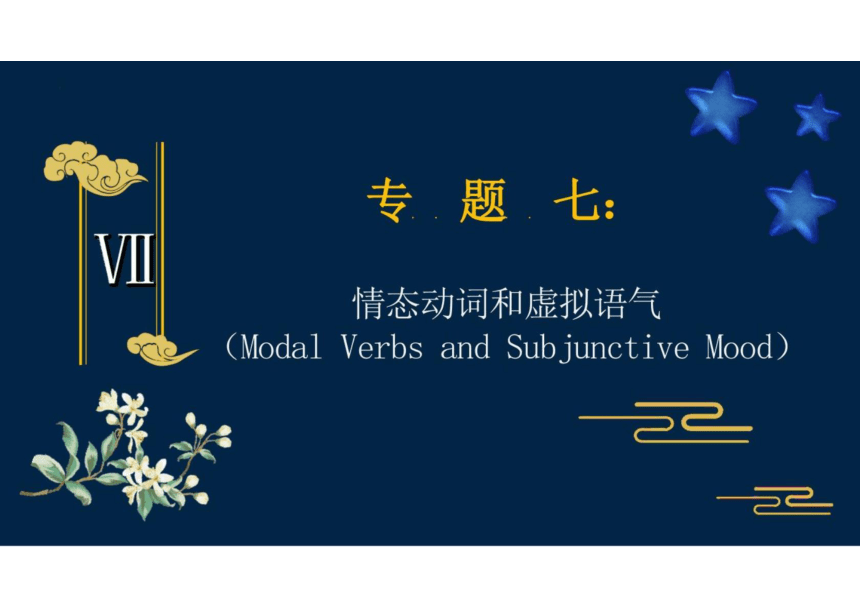 | |
| 格式 | ppt | ||
| 文件大小 | 5.3MB | ||
| 资源类型 | 教案 | ||
| 版本资源 | 通用版 | ||
| 科目 | 英语 | ||
| 更新时间 | 2022-10-28 15:55:14 | ||
图片预览

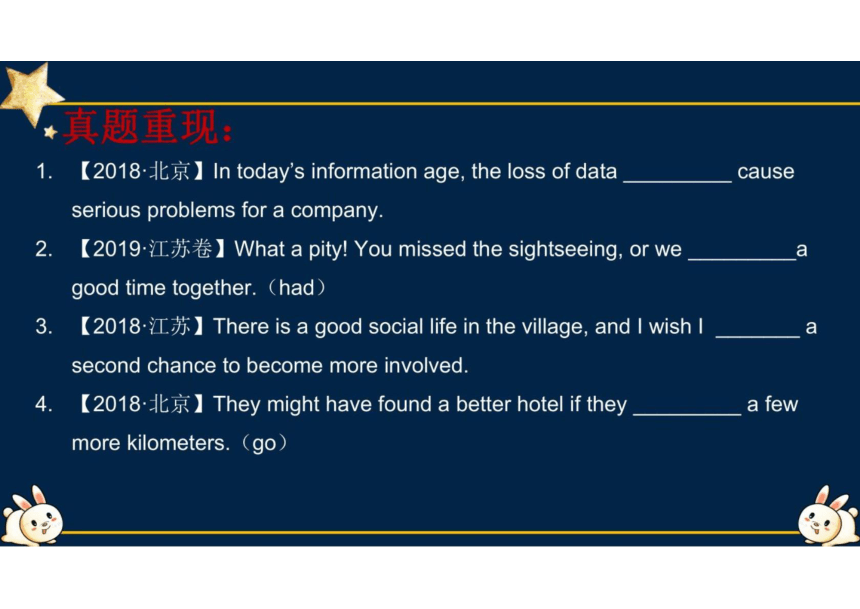
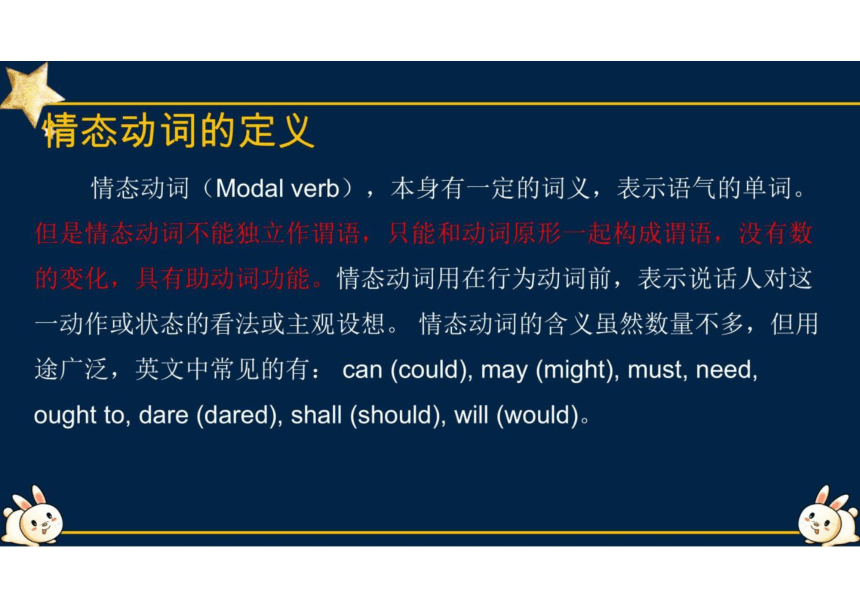
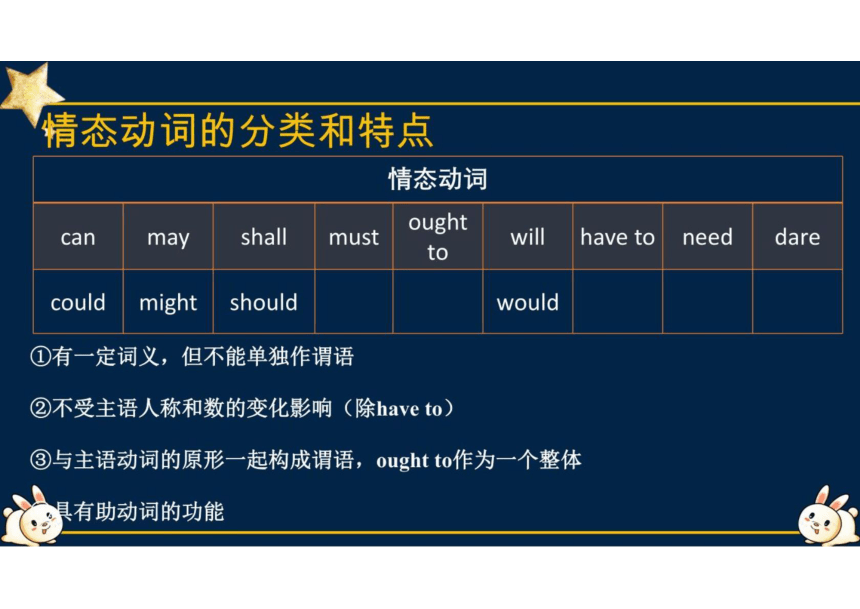
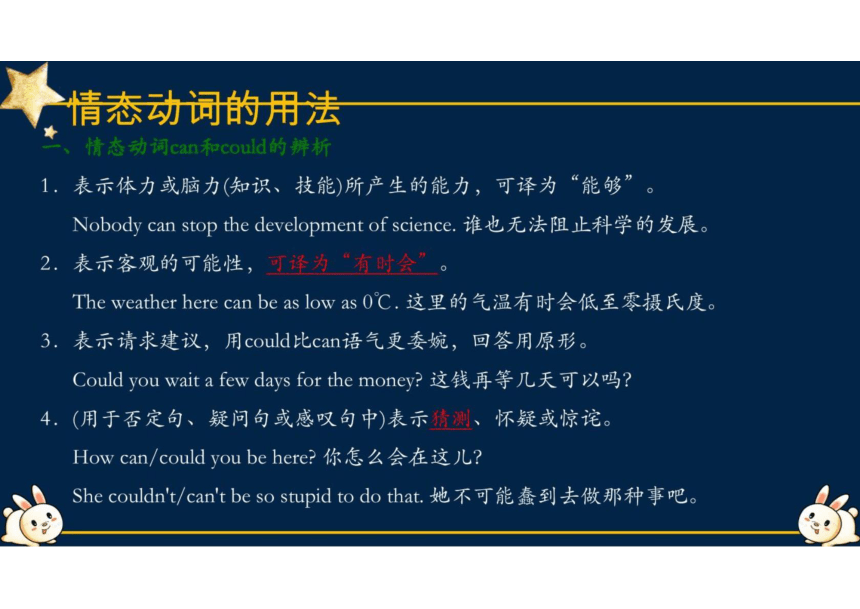




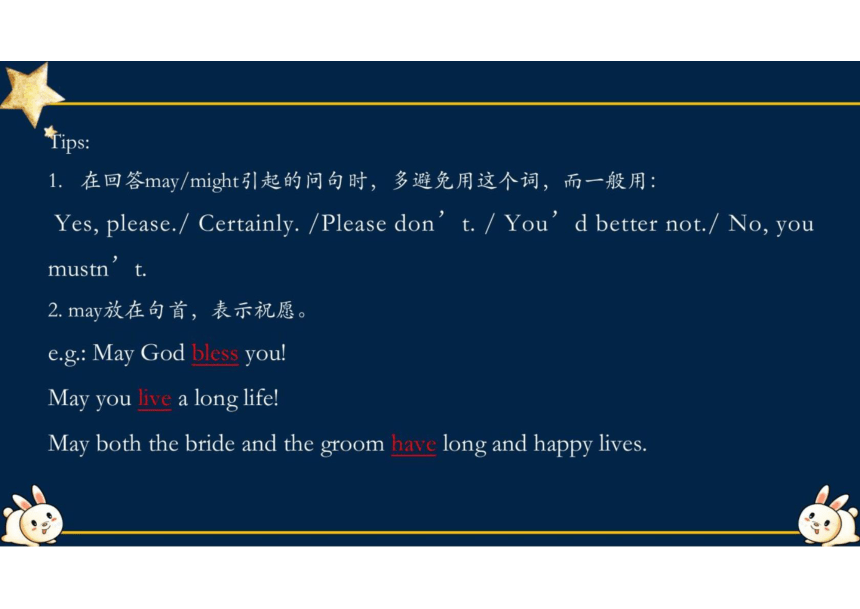
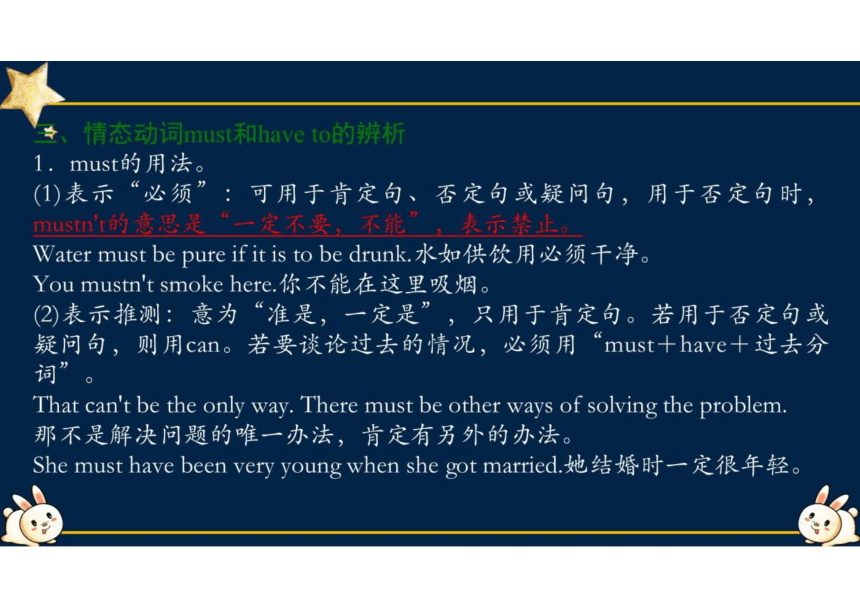

文档简介
(共41张PPT)
★
专.题七:
情态动词和虚拟语气
(Modal Verbs and Sub junctive Mood)
+真题重现:
1.
【2018北京】In today's information age,the loss of data
cause
serious problems for a company.
2.【2019江苏卷】What a pity!You missed the sightseeing,orwe
a
good time together.(had)
3.
【2018·江苏】There is a good social life in the village,and I wish I_
a
second chance to become more involved.
4.
【2018·北京】They might have found a better hotel if they
a few
more kilometers.(go)
情态动词的定义
情态动词(Modal verb),本身有一定的词义,表示语气的单词。
但是情态动词不能独立作谓语,只能和动词原形一起构成谓语,没有数
的变化,具有助动词功能。情态动词用在行为动词前,表示说话人对这
一
动作或状态的看法或主观设想。情态动词的含义虽然数量不多,但用
途广泛,英文中常见的有:can(could),may(might),must,need,
ought to,dare (dared),shall (should),will (would).
情态动词的分类和特点
情态动词
shall
ought
can
may
must
will
have to
need
dare
to
could
might
should
would
①有一定词义,但不能单独作谓语
②不受主语人称和数的变化影响(除have to)
③与主语动词的原形一起构成谓语,ought to作为一个整体
具有助动词的功能
情态动词的用法
情态动词can和could的辨析
1.表示体力或脑力(知识、技能)所产生的能力,可译为“能够”。
Nobody can stop the development of science.谁也无法阻止科学的发展。
2.表示客观的可能性,可译为“有时会”。
The weather here can be as low as0C.这里的气温有时会低至零摄氏度。
3.表示请求建议,用could比can语气更委婉,回答用原形。
Could you wait a few days for the money 这钱再等几天可以吗?
4.(用于否定句、疑问句或感叹句中)表示猜测、怀疑或惊诧。
How can/could you be here 你怎么会在这儿?
She couldn't/can't be so stupid to do that.她不可能蠢到去做那种事吧。
★
专.题七:
情态动词和虚拟语气
(Modal Verbs and Sub junctive Mood)
+真题重现:
1.
【2018北京】In today's information age,the loss of data
cause
serious problems for a company.
2.【2019江苏卷】What a pity!You missed the sightseeing,orwe
a
good time together.(had)
3.
【2018·江苏】There is a good social life in the village,and I wish I_
a
second chance to become more involved.
4.
【2018·北京】They might have found a better hotel if they
a few
more kilometers.(go)
情态动词的定义
情态动词(Modal verb),本身有一定的词义,表示语气的单词。
但是情态动词不能独立作谓语,只能和动词原形一起构成谓语,没有数
的变化,具有助动词功能。情态动词用在行为动词前,表示说话人对这
一
动作或状态的看法或主观设想。情态动词的含义虽然数量不多,但用
途广泛,英文中常见的有:can(could),may(might),must,need,
ought to,dare (dared),shall (should),will (would).
情态动词的分类和特点
情态动词
shall
ought
can
may
must
will
have to
need
dare
to
could
might
should
would
①有一定词义,但不能单独作谓语
②不受主语人称和数的变化影响(除have to)
③与主语动词的原形一起构成谓语,ought to作为一个整体
具有助动词的功能
情态动词的用法
情态动词can和could的辨析
1.表示体力或脑力(知识、技能)所产生的能力,可译为“能够”。
Nobody can stop the development of science.谁也无法阻止科学的发展。
2.表示客观的可能性,可译为“有时会”。
The weather here can be as low as0C.这里的气温有时会低至零摄氏度。
3.表示请求建议,用could比can语气更委婉,回答用原形。
Could you wait a few days for the money 这钱再等几天可以吗?
4.(用于否定句、疑问句或感叹句中)表示猜测、怀疑或惊诧。
How can/could you be here 你怎么会在这儿?
She couldn't/can't be so stupid to do that.她不可能蠢到去做那种事吧。
